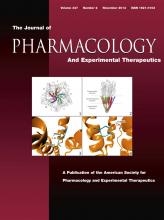Abstract
Alzheimer’s disease (AD) is a progressive neurodegenerative disease and the leading cause of senile dementia in the United States. Accumulation of amyloid-β (Aβ) and the effects of this peptide on microglial cells contribute greatly to the etiology of AD. Experiments were carried out to determine whether the pan-selective σ-receptor agonist afobazole can modulate microglial response to the cytotoxic Aβ fragment, Aβ25–35. Treatment with afobazole decreased microglial activation in response to Aβ, as indicated by reduced membrane ruffling and cell migration. The effects of afobazole on Aβ25–35-evoked migration were concentration dependent and consistent with σ-receptor activation. When afobazole was coapplied with either BD-1047 [N-[2-(3,4-dichlorophenyl)ethyl]-N-methyl-2-(dimethylamino)ethylamine dihydrobromide] or rimcazole, which are σ-1- and σ-2-selective antagonists, respectively, the inhibition of Aβ25–35-induced migration by afobazole was reduced. Prolonged exposure of microglia to Aβ25–35 resulted in glial cell death that was associated with increased expression of the proapoptotic protein Bax and the death protease caspase-3. Coapplication of afobazole with Aβ25–35 decreased the number of cells expressing both Bax and caspase-3 and resulted in a concomitant enhancement in cell survival. Although afobazole inhibited activation of microglia cells by Aβ25–35, it preserved normal functional responses in these cells after exposure to the amyloid peptide. Intracellular calcium increases induced by ATP were depressed in microglia after 24-hour exposure to Aβ25–35. However, coincubation in afobazole returned these responses to near control levels. Therefore, stimulation of σ-1 and σ-2 receptors by afobazole prevents Aβ25–35 activation of microglia and inhibits Aβ25–35-associated cytotoxicity, suggesting that afobazole may be useful for AD therapeutics.
Footnotes
- Received July 25, 2013.
- Accepted August 20, 2013.
This study was supported by a grant from IBC Generium (to J.C.).
- Copyright © 2013 by The American Society for Pharmacology and Experimental Therapeutics
JPET articles become freely available 12 months after publication, and remain freely available for 5 years.Non-open access articles that fall outside this five year window are available only to institutional subscribers and current ASPET members, or through the article purchase feature at the bottom of the page.
|






